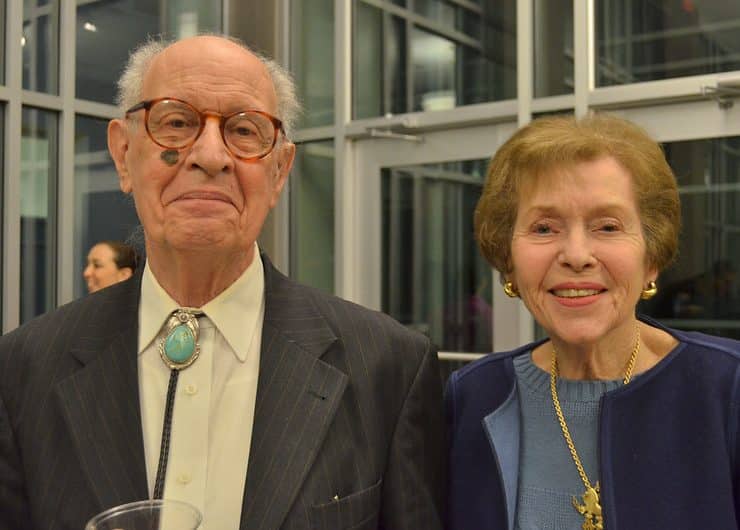
Methodist University will host internationally recognized military and diplomatic historian Gerhard Weinberg for its inaugural Union-Zukowski Lecture.
Methodist University will host internationally recognized military and diplomatic historian Gerhard Weinberg for its inaugural Union-Zukowski Lecture.
The Union-Zukowski Lecture Series is supported by the Union-Zukowski Jewish Studies Endowment. Weinberg’s lecture is titled “Adolf Hitler and the United States: Views, Plans, and Policies, and the Jewish Question in All Three,” and will begin at 6:30 p.m. on Feb. 6 in the Physician Assistant Auditorium on the campus of Methodist University. The event is free and open to the public.
“The resurgence of nationalist and populist movements in the United States and Europe today prompts reflection on similar movements in the past,” said Dr. J.R. Hustwit, associate professor of philosophy and religion at Methodist University. “Weinberg’s lecture on Hitler’s views concerning the United States ought to provide valuable insight into the relation between American democracy and Nazi Germany.”
Weinberg was born in Germany in 1928. His father lost his government job in 1934 because of his “Jewishness.” Only a few years later, in 1938 when he was nine years old, Weinberg was kicked out of his school and his father was arrested. Narrowly escaping deportation to a concentration camp thanks to a former employer who demanded his release, Weinberg’s family was able to escape Nazi Germany.
The family reunited in England and spent 1939 waiting to come to America. They eventually made it to America where they settled in Albany, N.Y.
After a short time in the military, Weinberg studied history at the University of Chicago, focusing on World War II. In the 1950s, he led the microfilming of confiscated German documents in Alexandria, Va. It was there were he found the arrest list with his father’s name on it.
A former employee of the Nazi Party’s publishing house recalled a book on foreign policies that Hitler dictated but did not publish. Weinberg found it in a batch of files in a folder that was mislabeled as a partial draft of “Mein Kampf.”
In 1961, the Institute of Contemporary History in Munich published the “Zweites Buch,” or Hitler’s second book, which includes commentary by Weinberg.
Weinberg currently serves as the William Rand Kenan Jr. Professor Emeritus of History at The University of North Carolina at Chapel Hill.
For more information on Weinberg’s visit, contact Hustwit at [email protected].
Photo: Gerhard Weinberg and Trustee Emeritus Terri Union